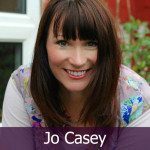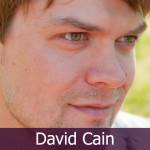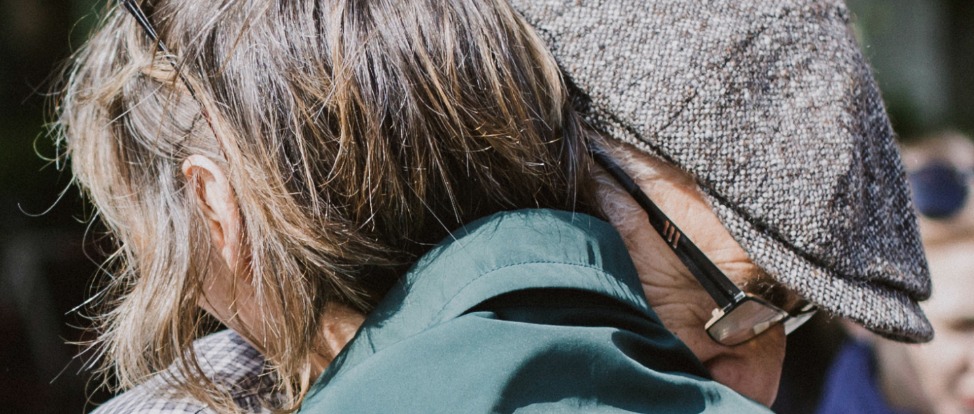
Ever wondered how the experts do it?
How they manage busy lives, successful relationships, deep friendships and fulfilling work, and still seem to glow from the inside out?
How they have such great self-care strategies?
I’m afraid I’m going to burst that bubble right now.
They don’t.
The ‘experts’ – me included – struggle with this stuff just as much as you do.
They’re a work in progress, just like you.
And they occasionally drop a ball – just like you.
But what they do have, that maybe you don’t, is experience and a toolkit to draw on.
So when they feel themselves flagging, or they realise that life is veering a little from the stable, peaceful path they’re set on, they know where to go to help and support themselves.
This post draws from interviews I did with 16 bloggers, coaches and psychologists who are experts around the topic of self-care and self-kindness, and generously shared their advice and ideas.
Share this one widely – there are some great tips from these amazing interviewees!
![]()

Jen Louden is one of the founders of the self-care movement, with books such as The Woman’s Comfort Book and The Couples’ Comfort Book. I love her focus on ‘living without holding back’, which doesn’t mean people-pleasing, or exhausting yourself, but rather being in full integrity with yourself whilst being all that you can be in the world.
Where to start with Self-Care
Start noticing what self-care feels like and looks like in your life right now. Don’t change anything, or start a complicated plan, or do anything new, but just experience what it’s like when you sit at your computer for twelve hours, or send another three emails when you’re about to pee in your pants. Notice it and feel it, don’t think about it and have a story about it, but feel the sensations, bring your full attention to life as it is right now. Sit there for a good week with it. Because without this information we don’t have any skin in the game.
How to Soothe Yourself in the Moment
Go in through the body – the body is the quickest way. We’re mammals and we want to pretend we’re heads on a stick.What do I mean by go in through the body? Put your hand on your heart or your belly or put your arms round yourself in a hug, give yourself a little soothing gesture and bring up a pleasant memory of a time when you were relaxed or happy. Bring up all the sensory details you can – what did it smell and taste like? How did it feel in your body? The mind will say there’s no time, but you can say that science shows you only need to do this for 60 seconds – you have time for this ‘one minute reset’.
Her Interview Discusses
- Where to start if you’re new to self-care
- The difference between shadow comforts versus truly nurturing yourself
- How to deal with obstacles to self-care
Great Resources Jen Suggests:
Radical Acceptance Podcast by Tara Brach
Buddha’s Brain and Just One Thing by Rick Hansen
The Book of Awakening by Mark Nepo
Find her here: JenniferLouden.com
Buy her book: The Woman’s Self-Comfort Book

Susannah Conway is a photographer, author and teacher; an introvert who used her skills as part of her route back from the tragic death of her partner in 2005. Her beautifully written, soulful website shares her thoughts and feelings on life, combined with her own gorgeous photographs. She lets others into the light and dark of her heart in order to help them ask important questions about life, and see that they’re not alone.
Why you NEED to take care of yourself
Everything starts with you. Your relationships with your kids, significant other, family, friends. Your work life. Your dreams and goals. The way you move through the world — all of it starts with YOU. You know the cliche of putting your oxygen mask on first? This is it. If you know yourself, trust yourself, can sit with yourself and feel what you feel, know what you know, you can be there for everyone else when they need you. By tapping into the core of who you are you can beam that powerful light back out into the world.
How to Soothe Yourself in the Moment
Stop, look around and name things that are around you. Literally name what’s around you for a couple of a minutes. This brings you back into the moment.
Her Interview Discusses
- The role of therapy in self-care, and the difference between therapy and coaching
- How journalling can help with self-care and some tips on how to use journalling in self-care
- Reflections on the necessity of taking care of yourself while grieving
Great Resources Susannah Suggests:
Meditation Apps
Lucent
Headspace
Calm
How to Meditate by Pema Chodron
Meditation for the Love of It by Sally Kempton
Find her here: SusannahConway.com
Check out her beautiful meditation course: The Sacred Alone

Alex Franzen is an author, columnist, teacher, entrepreneur and most of all, communication expert. She writes non-fiction and fiction, has a wildly successful blog, is all over the internet from Huffington Post to Time, and her clients have included everyone from Danielle LaPorte to Marie Forleo. Her kind-but-tough advice helps people articulate better – and in doing so, helps them discover aspects of themselves they’ve never before uncovered.
Why you have no excuse not to take care of yourself
This won’t work without you – whatever you’re doing with your life – you are the celebrity, you are the star, you’re the engine: it’s you. If you’re sick, if you’re exhausted, if you can’t think clearly, this won’t work, the party won’t go on. Really think of yourself as indispensable to yourself, and put yourself first, because the train can’t keep moving unless you are in peak condition.
How to Soothe Yourself in the Moment
Breathe – it’s amazing how we hold our breath when we’re stressed or panicked. And then ask: what would energise me right now? What would build my energy in this moment?
Her Interview Discusses
- How to decide if you’re saying no to something out of self-care or because you’re lazy or scared
- Self-care when you’re your own boss
- How being kinder to other people helped her to be kinder to herself
Great Resources Alex Suggests:
Start Where You Are by Pema Chodron
Mr Rogers
Gilmore Girls
Find her here: AlexandraFranzen.com

Hannah Braime is a coach and writer with a passion for psychology and personal development. A voracious reader, writer and podcaster, she discuss the importance of topics such as authenticity, kindness, compassion and boundaries. Her articulate and useful book on self-care, ‘From Coping to Thriving’ shares many tips, tactics and strategies for taking responsibility for your physical, emotional and spiritual well-being.
What Does Self-Care Mean to Her?
I see self-care as a way of life, not as something we do when we’re on the verge of losing it or burning out…it’s the little things we do every day that contribute to our overall sense of wellbeing.
Bringing Your Focus Inwards
Start to shift your attention away from ‘what can I do externally to feel worthy’ to ‘what can I be internally to feel worthy’. Ask yourself ‘what qualities are most important for me to embody as a person?’
Her Interview Discusses
- How do we understand what we actually need to take care of ourselves?
- Why hearing voices in your head doesn’t always make you crazy
- What the biggest obstacle to self-care is
Great Resources Hannah Suggests:
Essentialism by Geoff McKeown
Byron Katie’s The Work
Non-Violent Communication Centre Feeling Inventory
Find her here: BecomingWhoYouAre.net
Get her book: From Coping to Thriving

Kelsey Murphy is a personal and professional coach with an impressive portfolio of clients that includes Nintendo and Coca-Cola. She digs deep with her clients to help them get clear on, and then go after, their personal desires. Her passion and enthusiasm for her clients shines through in her work and the women’s community she founded, Whiskey and Work which informs and inspires, with purpose, adventure and a little bit of humor along the way.
Get Inspired
You will be stronger and smarter and kinder to others if you acknowledge what you need first.
How to Soothe Yourself in the Moment
I find laughter the best thing I can do when I’m anxious, or in my head or in overwhelm. A minute or two of laughter will always bring me back to the present.
Her Interview Discusses
- Why you have to take care of yourself rather than relying on others to do it
- How she stopped being a night owl and became a morning lark because of self-care
- The importance of continuing to push yourself while celebrating the small wins
Great Resources Kelsey Suggests:
Zen Habits
The Gifts of Imperfection by Brené Brown
Find her here: KelseyMurphy.com and Whiskey and Work

6. JoCasey.com
Jo Casey is a coach whose blog and podcast ‘Work Happy’ supports change-makers to build a business without crushing their soul. Jo’s worked in the corporate as well as the online world as a consultant and a trainer, and has twenty years’ experience in personal development. She’s passionate, hugely experienced and down to earth.
Why You’re Imperfectly Perfect
There’s nothing wrong with you. You haven’t got anything to prove. You’re going to make mistakes, it doesn’t mean you’re a failure – that’s part of the deal.
On Mindfulness and Self-Care
You can’t get this stuff ‘right’, and yet I know it feels good to overachievers to ‘get things right’. But you can’t intellectualise this. Sometimes this is about sitting and doing it. And yes, sometimes it will feel good, relaxing, and you’ll be refreshed, but sometimes it will be like watching a ping-pong match of your thoughts, but even that is still doing you good. You need to do the work. It won’t feel good all the time.
Her Interview Discusses
- How to practise self-care as an introvert
- Practising mindfulness and self-compassion
- How to meet yourself where you’re at
Great Resources Jo Suggests:
Brené Brown’s TEDx talk: The Power of Vulnerability
Mindfulness: A Practical Guide to Finding Peace in a Frantic World by Mark Williams
Mark Williams’ ‘Secular Sunday Sermon‘ on Mindfulness
The Antidote: Happiness for People who Can’t Stand Positive Thinking by Oliver Burkeman
Find her here: JoCasey.com

Dr. Danielle Dowling is a psychologist and writer who inspires women to live more authentic lives. She’s met her own challenges around relationships, her body, eating and love, but through years of self-work and study she has been able to transform her life to create a life she loves. She blends her academic background with a practical bent aimed at using psychology to help her clients build a more positive future.
Be Your Best Self
It’s not about being perfect, but about being our best selves…When we are kinder and more self-compassionate, it’s easier to be like this with others.
How to Be a Little Kinder to Yourself
Slow down. Create healthy boundaries and really protect one of your weekend days. Have all the electronics off and commit to connecting with people you love in your life and connecting with yourself instead.
Her Interview Discusses
- Why self-compassion is a process not an event
- How and why you need to have healthy boundaries
- How can self-compassion can help us to create more positive relationships with others
Great Resources Danielle Suggests:
A Course in Miracles
10% Happier by Dan Harris
Marianne Williamson Live Stream Mondays
Find her here: Danielle-Dowling.com
Download her free 72 page book: How to Live Your Life on Purpose

Steve Errey is a confidence coach who inspires his clients to have confidence in themselves and get going with the things they want. Steve and his website, books, and coaching are down to earth, practical and very funny. He helps his clients say “sayonara” to self-doubt, second-guessing and people-pleasing so they can have a sweet and beautiful life.
Practice Makes (Im)Perfect
Self-care is about listening. Hearing what your body is saying and then responding to that in a way that’s meaningful rather than just reacting. Self-care needs to be a deliberate habit, but the more you do it, the easier it becomes.
How to Be a Little Kinder to Yourself
Make nourishment a positive choice rather than a burden. Anything that’s taking deliberate, meaningful action is the key. It’s not like you get to a point where you sit back and say that’s done, now I can have cake. It’s a deliberate, consistent meaningful behaviour. Put those practices in place and make it a deliberate choice.
His Interview Discusses
- How investing in self-care will help your confidence
- How to balance the things that matter and have meaning for you with a chronic illness
- Why sometimes you need to accept help
Great Resources Steve Suggests:
Guided Meditations by Jon Kabat Zinn
Brené Brown’s Website
Find him here: Confidence.Coach
Download his free book: The Code of Extraordinary Change

Dr. Pauline Clance is a highly experienced and influential psychologist and psychotherapist who works with individuals, relationships, groups and businesses who are experiencing struggles and difficulties to achieve more success, love and zest in their lives. Dr Clance was one of two psychologists who did the original research on and conceptualized the ‘impostor experience’, or what popular culture has called ‘Impostor Syndrome’, where people are unable to believe in their accomplishments, instead feeling they’re frauds who don’t deserve the success they’ve achieved.
What is Self-Care?
Ideally, taking care of the whole person, attending to your wants and needs within the context of your life. I think self-care looks different for each person, and at different times in our lives. For someone, it might be withdrawing, and getting more quiet time. For others, it might be talking with a trusted friend or going to a class. It involves self-knowledge.
The Impostor Phenomenon
The Impostor Experience is that experience of bright, confident, achieving people, who really have objective evidence that they’re doing well, but they are doubting their abilities. And they begin to think, ‘I appear more confident that I really am’. They have a tremendous fear that people may find out that they really don’t know, and we did find that this affects both men and women…High Impostor Phenomenon people tend to be as if as soon as they achieve one thing they’re not able to get all the joy because immediately they begin to think ‘oh, I need to achieve even more to show that I am competent’…One practical thing to do is to think about your situation, and think about a good friend, a client or a loved one who might be in that same situation – how would you talk to that person? What would you say to that person? High IP scorers do have real compassion for other people, so they wouldn’t talk to another person in the same way they would talk to themselves…so that’s one way to practise saying to yourself what you might say to others.
Her Interview Discusses
- Self-care in the context of impostor phenomenon
- How to balance self-care with still being a good friend, partner or parent
- Why the idea that you need to suffer to achieve is a ‘superstitious belief’
Great Resources Pauline Suggests:
The Mindful Way Work Book by John D. Teasdale and Jon Kabat-zinn
Inner Excellence at Work: The Path to Meaning, Spirit and Success by Carol M. Orsborn
The Compassionate-Mind Guide to Overcoming Anxiety: Using Compassion-Based Therapy to Calm Worry, Panic and Fear by Dennis Tirch and Paul Gilbert
Find her here: PaulineRoseClance.com
Learn about the Impostor Phenomenon and Take the Free Imposter Phenomenon Test

10. TheUnlost.com
Therese Schwenkler is a blogger and writer whose personal development blog and community ‘The Unlost’ shares down to earth, no BS answers to questions about life, love and work. Therese’s blog has repeatedly been named in the top 50 personal development blogs, her community rave about her refreshing advice, and she’s a prolific writer across many other well-known sites from the Huffington Post to TinyBuddha.
Act Now
Don’t let it be too late until you realise that you need to take care of yourself. That’s how it happens for a lot of people. You get burned out. You could lose your health if you keep going at the rate you’re going now. Don’t let that be the reminder that you have to prioritise self-care.
A Way to Be Self-Compassionate
Have a gentle tenderness, or almost a love, for those parts of you that feel difficult at times: for your insecurities or your critical voice, or for any difficult feelings or situations in your life. What does it mean to not push them away, and not make them bad, but be able to stay with those and have a gentle, tender kindness towards them?
Her Interview Discusses
- On practising self-care with a chronic illness
- How to experiment with self-care till you find what works for you
- The power of self-tenderness
Great Resources Therese Suggests:
Pema Chodron
Cal Newport
Gretchen Rubin
Find her here: TheUnlost.com
Read Therese on Dealing with Suckiness

Tia Singh, also known as Tia Sparkles, is a coach whose own struggle with depression and anxiety helped drive her to live an inspiring life, with freedom as her goal. She uses her own life experiences and business knowledge – she has a Masters in Business Administration – to help clients dream bigger, demand better, and make braver choices.
You Matter
You’re no good to anyone if you’re not good to yourself…self-care starts with knowing you need some care.
Looking Back on Her Depression as a Young Woman
What I learned from that experience, and what I would like to tell myself as a young girl is to tell her she was never alone. That it was all in my head, and just by talking about what’s going on, just asking for help, that really is how recovering and healing starts. That’s how shame gets eradicated.
Her Interview Discusses
- How to appropriately express your emotions
- Chanting and self-care
- Why FOMO (Fear Of Missing Out) can stop you taking care of yourself properly
Great Resources Tia Suggests:
The Road Less Traveled by M. Scott Peck
Real Magic by Wayne Dyer
Momastry
Find her here: YourLifeYourWay.net

Caroline Leon is a Life Coach who helps people to let go of what’s stopping them achieving their dreams. Caroline herself stepped out of a ‘conventional’ life several years ago, when she resigned from a high-paying corporate job in London to redefine her life on her own terms and to travel and work around the world. Caroline’s personal journey of self-care is very inspiring – she’s overcome addiction and depression as well as self-doubt and fear to build a strong and positive relationship with herself.
Permission
Give yourself permission to feel whatever you’re feeling, and then honour that.
Her Tipping Point on Self-Care
Before I could take responsibility for how I was in the world, but before I could even look at that, I had to take responsibility for how I was treating myself…This realisation that it was in my control to make my life better, and then realising that that applied first and foremost to myself was the big turning point for me.
Her Interview Discusses
- How to resolve the tension between living a life without limits and taking care of yourself
- How to move past ‘should’ and become more self-compassionate
- Why you need to be as kind to yourself as you are to others
Great Resources Caroline Suggests:
Quiet: The Power of Introverts in a World that Can’t Stop Talking by Susan Cain
The Creative Practice of Morning Pages
Dying to Be Me by Anita Moorjani
Find her here: LifeIsLimitless.com

13. ElenaLipson.com
Elena Lipson is a writer and speaker on the topic of self-care. She inspires and motivates individuals and groups to find balance and wellness, and focuses particularly on helping entrepreneurs create their dream lives and businesses. Elena trained as an organizational psychologist and has 15 years in the corporate world as well as her own experience of realizing she needed to put herself first in order to show up in the world as her best self.
What Self-Care Isn’t
It’s not just about going to the spa, it’s more about getting honest with your own needs, and not saying yes to other people because you think you should, and noticing those moments when you’re not honouring your voice, or saying what you really need. Because over time that really builds up resentment and illness in your body.
On Being an ‘Overachiever’
People aren’t stopping to question what they really want. If you’re already sensing that you’re heading in a direction that doesn’t feel so good, then maybe it’s time to ask other questions, like what does success really mean to me, or how do I want my month to look. Am I postponing my own joy for some other version of success that isn’t my own? There’s nothing wrong with being an overachiever – but not as something that’s filling up empty space in your life.
Her Interview Discusses
- Why self-care is more than just going to the spa
- How self-care can help you in business and the bedroom
- How to say a gracious no
Great Resources Elena Suggests:
The Art of Extreme Self-Care by Cheryl Richardson
The Big Leap by Gay Hendricks
The Four Agreements by Don Miguel Ruiz
Find her here: ElenaLipson.com
Join her Divine Self-Care Circle

Paige Burkes runs the website Simple Mindfulness as well as continuing to work in the corporate world as a financial executive. Her path has taken a number of interesting twists and turns to get to where she is now, as she’s worked in equine therapy, learned how to be self-sufficient while living in a tent, and managed a dude ranch, as she explored what really made her happy – and eventually realized that one of her key values was helping others. She then started the website Simple Mindfulness to help others achieve greater happiness, and on her blog she shares her own life learnings to facilitate this.
Prioritise You
There’s always one more thing we need to do. Catch yourself and ask yourself and your body what you need and listen to that. You need to prioritise yourself.
Get in Touch With Your Body
A mindfulness practice is to notice when your body says hey it’s time to take a break. Take deep breaths, smile, and get perspective, it doesn’t really matter. Decide what’s the one next thing you can do because you can’t focus on a million things at once.
Her Interview Discusses
- How we can be kinder to our physical bodies
- How do our repeated behavioural patterns affect self-care
- An in depth look at mindfulness and self-care
Great Resources Paige Suggests:
The Life Organizer: A Woman’s Guide to a Mindful Year by Jennifer Louden
Mind Over Medicine by Lissa Rankin
Find her here: SimpleMindfulness.com
Check out her Mindful Body Programme

15. SandiAmorim.com
Sandi Amorin is a coach and writer whose new book ‘The 100 Day Promise’ gives readers the resources and strategies to make lasting change from the inside out. One of my favourite lines from Sandi’s about page is that she’ll ‘go in gentle, but then channel Kali’ – who’s the Hindu goddess of time, change and death, in case you’re not aware – ‘and lead a search and destroy mission for what’s no longer working in your life’.
Be Ruthlessly Compassionate Towards Yourself
Ruthless self-compassion is when we tell the truth about what’s working or not working. Only then can we make room for what would work better, or what we really need.
Language Matters
The language we use creates our reality…we need to change from ‘SMART’ goals to what feels good. For example, a goal of ‘I want to feel good in my body’. Then we can focus on what would make me feel good today and ask ourselves ‘What do I need to feel good today’.
Her Interview Discusses
- Self-love versus self-care – and ruthless self-compassion
- The powerful role of self-forgiveness and self-care
- How to spot the warning signs that you need to take better care of yourself
Great Resources Sandi Suggests:
Buddha’s Brain: The Practical Neuroscience of Happiness, Love and Wisdom by Rick Hansen
You Are the Placebo by Dr Joe Senza
The Desire Map by Danielle LaPorte
Find her here: SandiAmorin.com
Read her book: The Hundred Day Promise

16. Raptitude.com
David Cain is a writer who shares his experience of ‘getting better at being human’ at the highly popular blog ‘Raptitude’. What I love about David’s writing is that it uses plain language, and is grounded in both the literature in the area and his own practical experiments, that is, the application of ideas and public observation of the results.
The One Question You Need to Ask Yourself About Self-Care
Often self-love is confused with self-indulgence, which is the equivalent of feeding a kid ice cream for breakfast because that’s what pleases them the most. So just ask what the most loving thing to do is, if well-being is your goal.
Are there Gender Differences in Self-Care?
Fundamentally, no. But there are certainly different cultural pressures that push men and women towards different coping strategies and different priorities. I think we’re generally the same though, and fundamentally we all suffer from the same issues: insecurity, doubt, clinging, unconscious habits, etc.
His Interview Discusses
- The role of meditation in self-care
- What we can do about self-limiting beliefs
- His experiments to ‘become a better human’
Great Resources David Suggests:
Jon Kabat-Zinn’s books
Steve Pavlina’s site
Don’t Sweat the Small Stuff by Richard Carlson
Find him here: Raptitude.com
So there we go. 16 fabulous bloggers, psychologists and coaches and their advice, tips and resources around self-care.
If you’d like to download or listen to the full interviews, then click here.
Now the only thing you have to decide is which to try first.
Just remember – be kind to yourself!
Ellen x









Comments on this entry are closed.
Wow Ellen, what a wonderfully comprehensive post.
Self-care means different things to different people and you’ve certainly got it covered! I love Sandi Amorim’s idea of being ruthlessly compassionate towards yourself. Ruthlessness and compassion are not terms we normally associate with one another. But it works.
Thanks for putting this together.
Helen
Thanks for reading Helen, and I love that phrase too! It really resonated for me :-) And yes, this is a pretty comprehensive round up – I’m hoping it will provide food for thought and ideas for people at all levels of self-care.
Top-notch list of experts, Ellen. Cannot wait to dive in and binge-listen to these interviews! And I love the extra suggested resources from each expert as well.
Thanks Nicki – and the resources that were suggested were fab – I’ve already signed up for a few new bloggers and bought quite a few new books! :-)
Excellent resources in this interview list. Thanks for breaking down the recommendations of each expert. This is so helpful for me to be able to access everyone’s recommendations quickly. Great to see some favorites in here among new-to-me self-care experts I must explore. As I delve into mindfulness and self care more deeply, I’ve found myself trying to head in too many different directions. I love how everyone seems to have the same thread of thought- that mindfulness is what helps us succeed. Thank you!
Thanks Ashley. It’s definitely a common challenge – those of us who look for self-care are often ones who go into things ‘hell-for-leather’ so just transfer the perfectionist outlook to self-care! I think the best way is to take small steps and focus on the one thing that calls to you right now, and then take it from there. It’ll all still be there when you’re ready for it ;-)
Hi Ellen – such an informative post = we always think the ‘pros’ have it all sorted – nice to find their human too:)
Thanks Laura, yep, no-one is born with this stuff :-) But with a little effort, we can definitely make great progress!
It’s amazing that self-care is as unique to everyone as the uniqueness of being human. The thing that struck me the most is an adage as old as the hills – know thyself. Clearly this is the foundation for us all before we can even begin to practice self-care.
So inspiring Ellen. :-)
Thanks Elle – I think you’ve hit the nail on the head there. The better we know ourselves, the better we can look after ourselves.
What a wealth of wisdom you have brought together here, Ellen, from the interview to the book suggestions. I know I’ll be referring back to this one again and again!.
Thanks Debbie – yes, me too, there’s so much great advice and ideas here :-) Glad you’ve enjoyed it!
Such a fabulous resource with so many wonderful and experienced perspectives. Love it. Thank you all.
Thanks for reading Laura – your own series of interviews is equally inspiring!
What a thorough post Ellen! I just signed up for the full audio interviews.
I’ve been guilty of little self care since our little man arrived. I had an especially challenging day on Monday and my husband sent me for a massage and facial – a rare treat! It was amazing what a difference it made – I felt like a completely new and much happier person afterwards. It’s like we find ourselves with a little self care.
Thank you for further inspiration.
Hi Ellen, What a great resource you have put together…..will definitely follow some of these blogs. I think mindful living is the key and taking small steps. Since I started meditating and practicing mindfulness I’m a lot more calm and can carry out more tasks. Thanks for sharing!
Thanks Kylie, and they’re a wonderful group of writers, definitely worth checking out. And you’re so right, small steps are the way forward – it’s not self-compassionate to get into overwhelm which can be an easy thing to do when you’re presented with such a delicious list of resources! ;-)
Amazing list that you have put together!! Thanks for introducing them and the resources they recommend!
Great list and resouces for making sure we are kinder to ourselves, great to se freinds and fellow bloggers here.